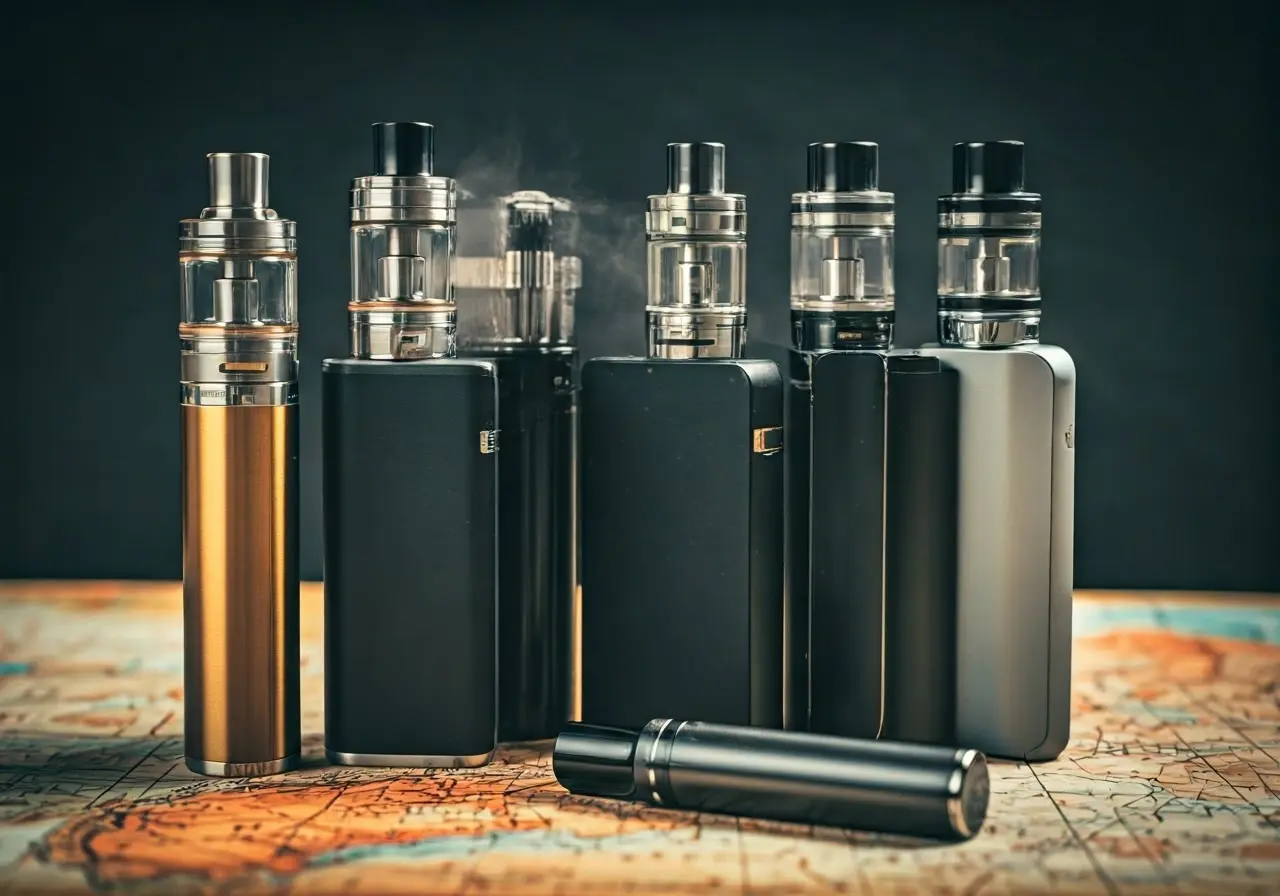With the growing popularity of THC vapes, it’s important to understand where they’re legally available. Each state in the U.S. has its own laws regarding the use and sale of these products. This FAQ blog aims to provide clarity on the legality of THC vapes across different states.
What Are THC Vapes?
THC vapes are devices that vaporize tetrahydrocannabinol (THC), the psychoactive component of cannabis. They come in various forms, such as vape pens, cartridges, and pods.
These devices heat THC concentrate to a temperature where it becomes vapor, allowing the user to inhale it. This method is often preferred for its convenience and the smoother experience compared to traditional smoking.
Vaping devices range from simple, disposable pens to more sophisticated setups with adjustable temperatures. This diversity allows users to customize their experience, balancing between flavor, vapor production, and intensity.
While THC vapes are rising in popularity, understanding the differences between products is key. Some offer higher levels of customization, while others prioritize ease of use. Awareness of these factors can greatly enhance your vaping journey.
Federal Laws on THC Vapes
At the federal level, THC remains a Schedule I substance under the Controlled Substances Act, making THC vapes illegal. However, enforcement typically varies based on state laws.
The landscape for THC vapes is complex. While federal laws classify THC as illegal, states have the autonomy to create their own regulations. As a result, many have enacted laws that either allow or restrict THC vape products.
Federal regulations mainly impact interstate commerce. This means while you might legally purchase THC products in one state, transportation across state lines, especially into a restricted state, can lead to legal complications.
States Where THC Vapes Are Legal
THC vapes are legal in states that have legalized recreational or medicinal marijuana. This includes states like California, Colorado, and Oregon. Check the specific regulations in each of these states as they may vary.
In California, for example, THC vapes are embraced as part of the wider legal cannabis market. Dispensaries offer a vast array of products, tapping into a thriving industry bolstered by supportive state laws.
Colorado stands out as a pioneer, being among the first to not only legalize cannabis but also regulate vaping devices comprehensively. This ensures safety and quality for consumers, setting a benchmark for other states.
States Where THC Vapes Are Illegal
In states where marijuana is prohibited, THC vapes are also illegal. States such as Idaho, Kansas, and Nebraska do not allow the sale or use of these products.
Understanding state-specific restrictions is crucial. For instance, Idaho maintains stringent laws against THC, preventing any form of legal sale or consumption.
As laws are subject to rapid change, especially in places with active advocacy movements, it’s vital to stay informed about policy updates. Adherence to local laws is key to avoiding legal repercussions.
Understanding State-Specific Regulations
Even in states where THC vapes are legal, regulations concerning purchase age, possession limits, and usage locations can differ. It’s essential to familiarize yourself with local laws to ensure compliance.
For example, while THC vapes might be legal in some areas, they might still be banned in public spaces or near schools. Communities often impose additional restrictions to control usage based on local norms and safety concerns.
Navigating these regulations might feel daunting, but there’s ample support available. Organizations and legal experts offer guidance to consumers and businesses to help them navigate through these complex regulations effectively.
Tips for Staying Informed
Keep up-to-date with legal changes by following trusted news sources, checking government websites, and joining local cannabis advocacy groups.
Additionally, connecting with local shops and dispensaries can also keep you informed about recent changes in these industries. They often offer newsletters or updates about products and regulations.
Technological tools such as mobile apps focused on cannabis laws can provide real-time updates and may also offer user-friendly interfaces to explore the diverse legal landscapes.
Understanding the Legal Status of THC Vapes
In conclusion, while THC vapes offer an alternative way to enjoy cannabis, it is crucial to stay informed about the varying legal landscapes. Make sure to check your local laws before purchasing or using THC vapes to ensure compliance and avoid legal issues.



